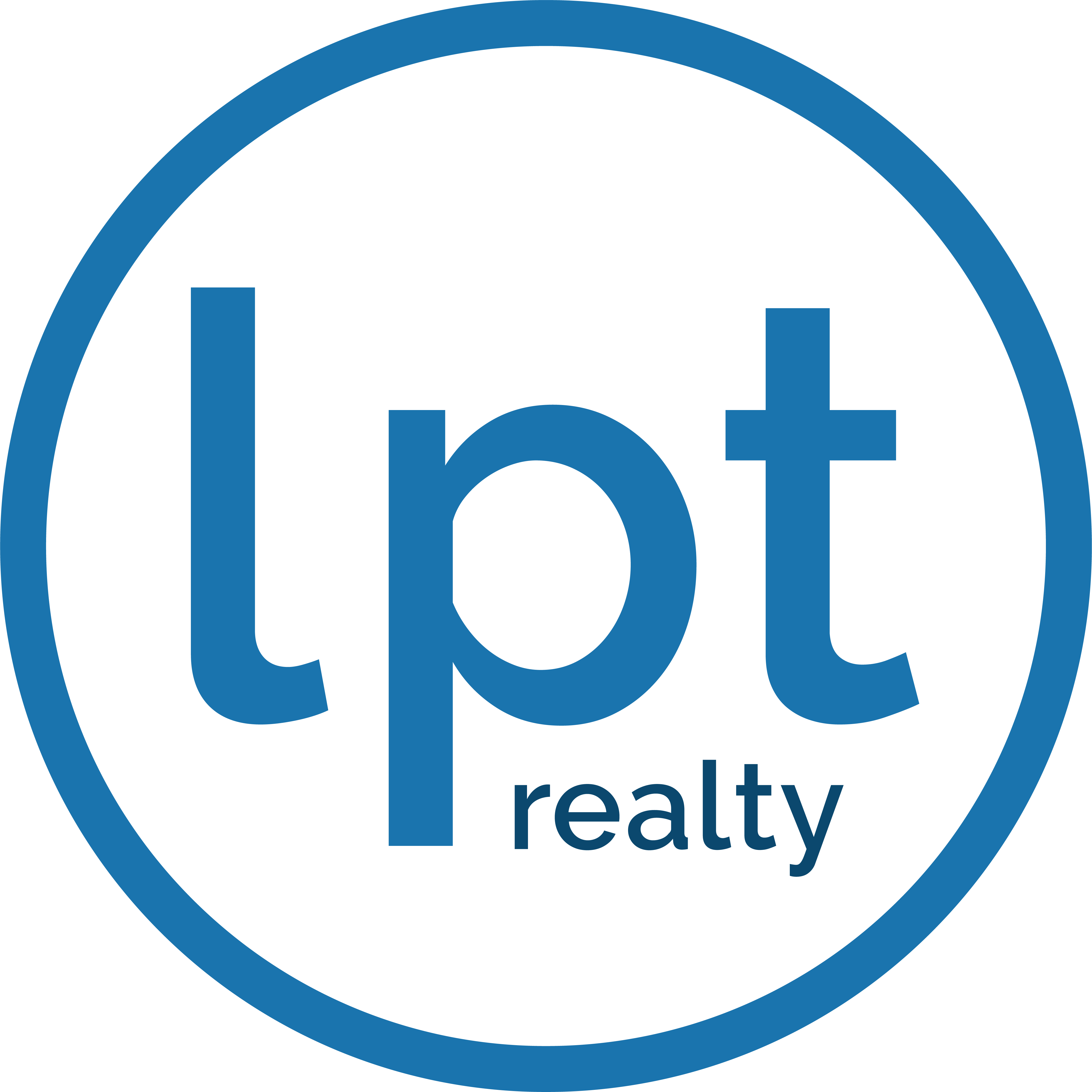Now or Later? Decoding the Best Time to Buy Your Dream Home

Just because mortgage rates and home prices are high right now doesn’t mean you should hold off on buying your dream home. I understand the confusion surrounding the market, and it’s important to consider your unique financial situation. In this guide, I will explore the top 10 factors to help you decide whether to buy now or wait, empowering you to make the best choice for your future.
Key Takeaways:
- Buy Now if you’re financially ready, with no debt, a full emergency fund, and a solid down payment.
- Wait to Buy if you have outstanding debt, lack an emergency fund, or haven’t saved for a down payment.
- House Payment Limit - Ensure your house payment doesn’t exceed 25% of your take-home pay to avoid budget strain.
- Mortgage Rates are expected to decline in 2024, but not significantly; don’t rely solely on lower rates as a reason to delay.
- Refinancing Option - If rates drop later, you can refinance, but your purchase decision should be based on your financial situation now.
Current Market Conditions
Before venturing into whether you should buy a home now or later, it's crucial to understand the current market conditions. The real estate landscape is continually evolving, and various factors affect my decision. I've recently come across insights suggesting that those looking for the optimum time to purchase might want to mark their calendars for the fall of 2024. For more details on this topic, check out The Best Time to Buy a Home Fall 2024. Knowledge is key, and being aware of trends can help inform my choices.
High Mortgage Rates
High mortgage rates have been a significant hurdle for many potential homebuyers like myself. Over the past year, rates have seen an increase, affecting the affordability of monthly payments. While it's anticipated that mortgage rates may see a modest decline in the coming year, waiting for a substantial drop may not be practical. I believe that if you’re financially prepared, high rates shouldn't deter you from making a purchase; instead, they should encourage me to weigh my options carefully and consider timing and budgeting.
Rising Home Prices
Now, let’s talk about the other side of the equation: rising home prices. The current trajectory shows that home prices are on the upswing, driven by strong demand and limited inventory. If I wait too long, I risk facing a higher purchase price as more buyers enter the market. It’s important to view this as a balancing act—waiting might lead to lower interest rates, but it could also mean paying a premium on the property itself.
With rising home prices being a potential barrier, it's clear that the longer I wait, the more I might end up spending. Thus, if I've established my financial footing, making a move sooner rather than later could be beneficial. As properties are sold quickly, delaying my decision might not just cost me a better mortgage rate, but also the opportunity to secure my dream home at a reasonable price.
Financial Readiness
Assuming you're considering buying a home, the first step is to evaluate your financial readiness. This means taking a close look at your current financial situation, including your income, expenses, and savings. Before making such a significant commitment, ensuring that you are in a solid position will not only ease the process but also enhance your overall confidence as a future homeowner. Factors such as your debt levels, savings for emergencies, and the ability to make a substantial down payment are all pivotal in determining whether now is the right time for you to explore the housing market.
Debt Management
An important aspect of your financial readiness is how you manage debt. If you currently have outstanding loans or credit card balances, it is wise to prioritize paying them off first. Carrying significant debt can limit your budget for monthly housing payments, making it hard to live comfortably once you become a homeowner. By reducing your debt, you create more breathing room in your financial landscape, allowing you to plan for homeownership with a clearer mind and a healthier credit score.
Emergency Fund
Now, let’s talk about your emergency fund. Before stepping into the role of a homeowner, having 3 to 6 months' worth of living expenses saved is imperative. This fund acts as your financial safety net, offering peace of mind should unexpected expenses arise after purchasing a home. It helps cover things like repairs or temporary loss of income, enabling you to avoid financial strain. When the unexpected happens, having this cushion ensures that you're not solely reliant on your monthly budget, allowing you to maintain your mortgage payments while effectively managing other responsibilities.
Management of your finances should extend beyond just saving for a down payment; it involves a holistic view of your financial health. Establishing and maintaining an emergency fund is a proactive measure, one that signifies preparedness and responsibility. This echoes the principle that while homeownership is a dream, financial stability is non-negotiable to sustain that dream. Your emergency fund should be seen as an integral part of your overall financial strategy, enabling you to pursue your homeownership goals without unnecessary stress.
Down Payment Savings
Unlike many financial decisions that hinge on market timing, the need for a substantial down payment is a constant when considering homeownership. As I consider if I should buy a house now or wait, I recognize that saving a solid down payment can make a significant difference in my long-term financial health. A typical expectation is around 20%, which helps avoid private mortgage insurance (PMI) and can secure better mortgage rates. However, it's vital to set realistic goals for your savings plan based on your income and expenses, allowing me to create a budget that works for my situation. For further reading on the factors influencing my timing, I found an interesting article on Should I Buy a House Now or Wait?.
Minimum Requirements
Clearly, establishing minimum requirements for a down payment is vital to ensure that I am on solid ground when approaching potential lenders. Many conventional loans require at least 5% to 10% down, while government-backed loans, like FHA loans, may allow for down payments as low as 3.5%. However, to avoid PMI and to showcase my financial stability, aiming for a down payment of 20% is often the most beneficial route. This approach not only lessens my monthly mortgage payments but also builds equity quicker, paving the way for a financially sound investment.
Avoiding PMI
Now, one of the primary reasons I strive for a larger down payment is to avoid private mortgage insurance (PMI), which can add a substantial cost to my monthly mortgage payments. PMI is generally required when I put down less than 20%, and while it protects the lender in case of default, it does nothing for me as the buyer. By aiming for that 20% threshold, I can save myself from those additional costs and keep my monthly payments at a more manageable level.
Savings play a fundamental role in enabling you to sidestep PMI. By committing to regular contributions to my down payment fund—whether through a high-yield savings account or an investment account—I can accelerate my savings rate and reach that 20% down payment faster. This systematic approach not only alleviates the burden of PMI but also aids in creating a more robust financial foundation for homeownership. Being deliberate about my down payment plans empowers me to make a more informed decision about my home purchase journey.
Monthly Payment Criteria
Not all homebuyers are created equal, and understanding how monthly payments fit into your budget is crucial before making a purchase. If you’re considering buying a home, it’s vital to evaluate what percentage of your income will go toward your mortgage payment. Lenders typically recommend that your monthly housing costs shouldn't exceed 28-30% of your gross monthly income. By adhering to this guideline, you can prevent financial strain and ensure that you have enough room in your budget for other expenses, such as utilities, groceries, and savings.
Budget Constraints
The key to successfully buying a home lies in your ability to manage your budget. Before exploring into potential properties, I encourage you to create a comprehensive assessment of your current financial situation. Calculate your total income and analyze your existing debts to determine how much you can realistically allocate to your monthly mortgage payment. It becomes even more important in this environment of high prices and interest rates. If your payments exceed a reasonable portion of your budget, it may be worth reconsidering your home-buying timeline or looking for a more affordable option.
Income Assessment
Criteria for your income assessment should focus on evaluating how stable and sufficient your income is relative to your desired home target. I recommend analyzing your earnings over the past few months to understand your average monthly income better. Consider fluctuations that may affect your earning potential, like seasonal work or commissions, and reflect on whether you have any changes in job security on the horizon. This analysis will provide you with a clearer picture of how your financial landscape supports your aspirations of homeownership.
It’s also vital to think about potential future income growth, such as promotions or job changes, as this could impact your ability to comfortably manage mortgage payments. Take time to look past just your current income and think about how your financial situation might evolve over the next few years. Being intentional about assessing your earnings ensures that you’re not just focused on what you can afford right now, but on sustainable homeownership in the long run.

Timing the Market
Your decision about when to buy your dream home is inherently tied to market conditions, particularly interest rates and housing demand. While it may be tempting to wait for the “perfect” moment, it’s necessary to consider how these factors affect your purchasing power. Monitoring trends in interest rates can signify whether now is a good time to buy or if waiting could yield more favorable terms for your mortgage. I always advise prospective buyers to take a proactive approach to understanding these fluctuations and how they impact home affordability.
Interest Rate Trends
Even though many are focused on high rates, it’s worth noting that some experts predict a gradual decline in mortgage rates by 2024. This potential decrease may make homes slightly more accessible in the future. However, waiting for rates to drop could mean missing out on a suitable home that meets your needs or, worse yet, falling victim to rising prices. I find that being informed about interest rate trends empowers you to make a more confident and grounded decision about buying now versus later.
Housing Demand
Rate fluctuations often impact buying behavior and can create a rush in housing demand. As more buyers enter the market, home prices can quickly rise, making your ideal purchase less attainable. I observe that when inventory is limited and competition is fierce, homes tend to sell above asking price, which can erode the benefits of waiting for a lower mortgage rate. Thus, understanding current housing demand is critical when deciding whether to jump into the market now or hold off for potentially better rates in the future.
Housing demand continues to evolve based on various external factors, including economic conditions and employment rates. As the market shifts, so too does the number of interested buyers and available properties. Keeping an eye on these dynamics helps me gauge when it becomes a seller’s market, thus highlighting the importance of acting quickly once I feel financially stable and ready to buy.
Long-Term Perspective
Once again, approaching the home buying decision with a long-term perspective can significantly benefit your financial planning. Real estate is not just about immediate conditions; it’s often about a trajectory over time. While market fluctuations can create uncertainty, those who successfully navigate the buying process typically think in decades rather than months. If you choose to purchase a home that meets your needs now, you have the chance to build equity and create a stable living environment for years to come. This perspective can also help you weather any future spikes in interest rates or property prices.
Investment Potential
While many view homeownership primarily as a personal milestone, I see it as a formidable investment opportunity. When you buy a property, you’re investing in an asset that can appreciate over time. Although the market may appear volatile now, historical trends suggest that real estate values tend to increase in the long run. If your home is in a desirable area with growth potential, your investment could yield significant returns as the years go by. Furthermore, a well-selected property can provide rental income if you decide to move in the future, allowing your investment to work for you even while you're not living in it.
Future Trends
Perspective is vital when thinking about the future trends in the housing market. As we move further into the decade, demographic shifts and urbanization will likely reshape demand in various regions. Technology advancements can also influence how people choose where to live, which areas gain popularity and how homes are built and priced. Keeping an eye on these trends will allow you to better position yourself, whether you choose to buy now or later.
With the impending changes in housing demand and preferences, I encourage you to stay informed about emerging trends. Areas that may seem less attractive today could transform into sought-after locations in just a few years. By understanding these patterns, you can make a more educated choice about timing your home purchase, leveraging your investment potential for the future effectively.
Risks of Waiting
Keep in mind that delaying your home purchase can come with significant risks. I understand that the current real estate landscape might seem intimidating with high mortgage rates and home prices, but waiting too long could mean missing out entirely on your dream home. The market can shift unpredictably, and factors such as increased demand or changes in economic conditions could lead to even higher prices down the line. If you’re curious about whether it’s better to buy your dream home now or buy a smaller option, you can explore discussions on this topic here.
Potential Price Increases
To navigate the decision of when to buy, it's important to consider the potential for price increases. If you choose to wait, you might find that the home you are eyeing could become more expensive due to a variety of factors, including ongoing inflation and rising demand for housing. I’ve seen countless cases where potential buyers hesitated, only to discover that homes in their desired neighborhoods appreciated far beyond what they had initially budgeted. The market won’t always favor buyers, and if you wait too long, you may ultimately pay more for a property than if you act now.
Opportunity Costs
Price is not the only consideration when deciding to wait; opportunity costs can be equally significant. If you remain on the sidelines while the market continues to evolve, you might miss out on not just lower prices, but also potential equity growth in a home that appreciates over time. The longer you wait, the more you forfeit the chance to build equity and capitalize on the investment that homeownership provides. Taking action now could mean enjoying the benefits of homeownership sooner rather than later.
Costs associated with waiting can also include lost opportunities in your personal financial growth. By investing in a home now, you not only secure a place to live but also create a valuable asset that could appreciate over time. I’ve often heard that the best time to buy a home was yesterday, and while it may sound clichéd, there is truth in it. Every moment you delay could mean missing out on a suitable market entry point, which prevents you from building wealth through real estate.

Benefits of Buying Now
For many aspiring homeowners, the question of whether to buy now or wait often hinges on immediate financial readiness versus potential future savings. I've realized that purchasing a home now can offer significant advantages, especially if you are financially prepared. With the increasing demand for homes, waiting could result in even higher prices. By making a move today, you position yourself to take advantage of current market conditions, ultimately providing you with a foothold in a competitive landscape.
Build Equity
Build equity as a homeowner can be one of the most rewarding aspects of your investment. Unlike renting, where your monthly payments contribute to someone else’s asset, every payment you make on your mortgage helps to increase your ownership stake in your property. This accumulation of equity can serve multiple purposes, such as providing security for future loans or being a source of funds for your retirement.
Tax Advantages
If you buy your home now, you may enjoy various tax benefits that are only available to homeowners. One of the most significant advantages is the mortgage interest deduction, which allows you to deduct the interest paid on your mortgage from your taxable income. This can lead to substantial savings during tax season. Additionally, property taxes are also often deductible, providing you with further relief.
Equity build-up coupled with these tax advantages can make homeownership a financially sound decision. The deductions can help offset the costs of homeownership, reinforcing the notion that buying now can be more advantageous than you might think. When combined with the long-term benefits of equity growth, the immediate financial relief offered by these deductions positions homeownership as a viable option for many individuals looking to invest in their futures.
Refinancing Options
Many homebuyers may find themselves considering refinancing as a strategy to lower monthly payments or access equity down the line. When you initially secure a mortgage, you commit to the prevailing interest rate, which can be less favorable in a high-rate environment. However, by keeping an eye on the financial landscape, you can take advantage of refinancing when rates drop, potentially reducing your monthly mortgage payments and saving you money over the long term. This flexibility is particularly beneficial if you make a solid financial decision now, knowing you can adjust down the road as the market shifts.
Future Rate Drops
With predictions suggesting a gradual decline in mortgage rates in 2024, the potential for refinancing becomes even more appealing. Locking in a mortgage now gives you the opportunity to benefit from future rate drops, allowing you to refinance later at a lower interest rate without impacting your homeownership experience. This means that although the current environment may appear challenging, your strategic purchase today could lead to sound savings tomorrow as you capitalize on more favorable financing options down the line.
Flexibility Benefits
Even with the current mortgage rates being high, purchasing a home now provides you with valuable flexibility. First, you are not just buying a property; you’re laying the groundwork for your financial future. When you buy now and choose to refinance when rates decrease, you’ll have the opportunity to adjust your loan terms to better fit your evolving financial situation, making it easier to adapt to any changes that life may throw your way.
For instance, if your income increases or your financial responsibilities shift, refinancing can allow you to tailor your mortgage to align with your current situation, whether that means lowering your monthly payments or tapping into equity for other investments or home improvements. This adaptability helps ensure that your home remains a significant and beneficial part of your financial portfolio.
Market Predictions
Despite the fluctuations in the housing market, many experts suggest that potential buyers should keep a close watch on market trends and indicators. While it's easy to get caught up in the noise of predictions and opinions, understanding the broader landscape can help you make informed decisions. As we move into 2024, mortgage rates are expected to decline modestly, which could present potential opportunities for those contemplating a home purchase. That said, I advise you not to solely base your decision on these predictions; the right time to buy ultimately depends on your unique financial situation and readiness.
Expert Insights
Any good real estate professional will tell you that while trends are meaningful, they cannot predict the exact future. I’ve found that many experts are cautiously optimistic about the housing market, suggesting that the combination of reduced mortgage rates and rising home prices may create an environment where buyers can find good deals, albeit with some risk involved. Therefore, if you’re financially prepared and ready to buy, plunging into the market sooner rather than later could be beneficial.
Economic Influences
Market conditions are influenced by various economic factors, including employment rates, inflation, and consumer confidence. These elements can impact not just housing prices and mortgage rates but also the overall economic health that consumers rely upon when making significant purchases like homes. I urge you to consider how these economic indicators are evolving, as they can significantly affect your purchasing power and the stability of your investment.
It’s important to keep an eye on these economic dynamics, as they might offer insights into the stability of the housing market. For example, if employment rates rise and inflation stabilizes, consumer confidence may increase, leading to heightened competition in the housing market. Being aware of these trends can help you better understand when to make your move, aligning your decision with a broader economic perspective rather than just local market fluctuations.
Final Words
Drawing together all the insights, determining whether to buy your dream home now or wait really comes down to your personal financial situation. If you find yourself in a strong position—debt-free, with a robust emergency fund, and a down payment ready—then moving forward now might be the best choice for you. Although mortgage rates may decline slightly in 2024, the potential for rising home prices could offset any savings you anticipate from waiting. Therefore, your readiness to purchase should take precedence over market fluctuations.
Ultimately, the decision is yours to make. I believe that buying a home should align with your financial goals and lifestyle aspirations rather than external pressures. By focusing on what fits your situation best, you can secure a home that meets your needs today, while still having options like refinancing in the future if rates drop even more. So take the time to evaluate your circumstances, and act when you feel ready to embrace homeownership.
Recent Posts



